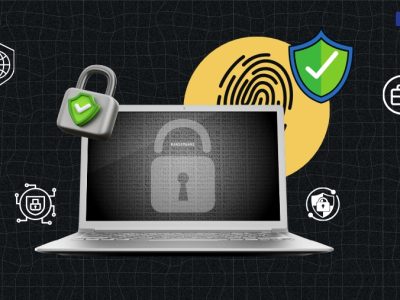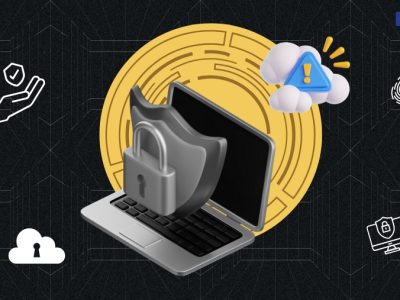Remote Work, Real Money: How to Earn a Six-Figure Salary as a Network Security Engineer

Tired of the daily grind? Sick of being shackled to a desk in a stuffy office? Good news: you don’t have to be. In today’s digital age, the world is your oyster. And for those with the right skills, the sky’s the limit.
Times have changed, and your professional options have diversifie,d and how! For instance, if there is one job that can guarantee security and salary, it is that of a network security engineer.
It’s not just a fancy title; just like a cloud security engineer, it’s critical to safeguarding our digital world. From protecting corporate secrets to thwarting cyberattacks, network security engineers are the unsung heroes of the internet. And the best part? They can do it all from the comfort of their own homes.
Imagine this: waking up to the sound of waves crashing or birds chirping, brewing a fresh cup of coffee, and logging into work from your laptop in paradise. Sounds like a dream, right?
For network security engineers, it’s a reality. The digital nomad lifestyle offers unparalleled freedom and flexibility, allowing professionals to work from anywhere globally.
So, if you’re ready to ditch the cubicle and embrace a life of adventure and financial success, it’s time to explore the exciting world of remote network security engineering.
Network Security Engineer And Remote Work? Is It Even Possible?
Skeptical? Don’t be. While the idea of a network security engineer working remotely might seem contradictory, it’s quite feasible. It’s becoming increasingly common as companies realize the benefits of a distributed workforce.
Can remote network security engineers provide an equivalent degree of security as their on-site counterparts? Without a doubt, the answer is yes. Remote engineers can efficiently monitor networks, identify dangers, and handle events with the correct tools and architecture.
For instance, consider these facts:
- VPNs, or virtual private networks: Remote employees can access company networks through these secure tunnels just like they would if they were there.
- Cloud-based security programs: Platforms such as cloud firewalls, intrusion detection systems, and security information and event management (SIEM) tools offer global protection.
- Tools for remote access: Remote administration and secure desktop sharing allow engineers to access and operate network devices from a distance.
Of course, there are obstacles that you might need to overcome. You could, for example, talk about compliance, data privacy, and internet connectivity. However, these challenges are readily overcome with the right preparation and equipment.
How Much Can You Earn as a Remote Network Security Engineer?
The demand for skilled network security professionals is soaring, and remote work has only amplified this trend. Even as a digital nomad, you can command a six-figure salary with the right skills and experience.
According to recent industry reports, the average salary for a network security engineer ranges from $110,000 to $140,000. However, remote workers often command higher salaries due to the increased flexibility and specialized skills required.
Factors that can influence your earning potential include:
- Experience and certifications: The more experience and certifications you have, the higher your salary will likely be.
- Location: While remote work allows you to choose your location, some regions may offer higher salaries than others.
- Company size and industry: Larger companies and industries with high-security needs often pay more.
- Negotiation skills: Don’t be afraid to negotiate your salary and benefits. A well-prepared and confident negotiator can secure a higher offer.
Remember, your earning potential is largely determined by your skills, experience, and the value you bring to the table. Furthermore, you can achieve financial success as a remote network security engineer with the right approach.
Key Considerations for a Network Security Engineer
While remote work offers freedom, it also presents unique challenges. Network security engineers must prioritize reliable internet, data security, and compliance with regulations when working remotely.
Here are some of the most important things that you would need to consider if you want to become successful as a remote network security engineer:
Technical Requirements
Being a remote network security engineer isn’t just about having a laptop and a Wi-Fi connection. Just like in the case of cloud engineers, it requires a solid technical foundation to ensure optimal performance and security.
First, having the right hardware is essential. Although a powerful desktop or laptop is necessary, don’t undervalue the significance of other gadgets.
A dependable external hard drive for backups, a high-quality webcam for video conferences, and a safe docking station for connecting to external monitors and peripherals are other items you should think about purchasing.
Second, don’t forget the importance of selecting the appropriate software program. Network security engineers require specialized software in addition to the normal operating system and productivity tools.
This covers VPN services like NordVPN or ExpressVPN, remote access programs like TeamViewer or AnyDesk, and security programs like firewalls, antivirus, and intrusion detection systems.
Thirdly, and perhaps most obviously, internet access is essential for remote work. You need a fast, dependable, and secure internet connection.
Although fiber optics are the fastest and most dependable, consider other solutions like cable or DSL if unavailable. Always emphasize security by avoiding public Wi-Fi hotspots and using secure passwords.
Finally, remote access and VPN solutions are essential for securely accessing business networks. VPNs build secure tunnels that shield private information from prying eyes.
Furthermore, you want to select a trustworthy VPN service provider with a solid reputation for security.
Thus, network security engineers can set themselves up for a lucrative and safe remote job by investing in hardware, software, and an internet connection.
Security Best Practices
Start with the gadgets you own. Update them with the most recent security patches, and refrain from downloading dubious programs. Every account should have a strong, one-of-a-kind password, and two-factor authentication should be enabled wherever feasible.
The security of Wi-Fi is yet another important issue. Avoid public Wi-Fi networks and encrypt your traffic with a VPN when doing critical work. Ensure your personal Wi-Fi networks have frequent firmware updates and are secured with a strong password before utilizing them.
Concern over cloud security is on the rise. With more companies and people depending on cloud services, it’s critical to recognize the risks and take the necessary precautions. Select trustworthy cloud service providers with strong security protocols, and check your cloud configurations frequently.
Lastly, remember the importance of your network. Penetration testing and ethical hacking are two methods that you can use to find weaknesses in your home network. Testing your defenses proactively helps improve your security posture and avert possible attacks.
Legal and Regulatory Compliance
THIS is the era of globalization. And in times like these, network security engineers must be aware of the legal and regulatory landscape.
In this regard, let me tell you one thing: data privacy regulations have significant implications for remote workers. Therefore, you must be thorough with regulations like the General Data Protection Regulation (GDPR) and the California Consumer Privacy Act (CCPA).
Furthermore, when handling sensitive data, engineers must ensure compliance with these regulations. This includes implementing appropriate security measures, obtaining necessary consent, and addressing data breaches promptly.
Additionally, working remotely across borders can also introduce legal complexities. Therefore, understanding local labor laws, tax regulations, and data privacy requirements is crucial. Besides, failure to comply with these laws can result in fines, penalties, and legal repercussions.
Therefore, staying informed about the latest legal and regulatory developments is essential for network security engineers operating in the global remote work environment.
Professional Development
Finally, continuous learning is not just a recommendation; it’s a necessity. And I cannot stress this enough!
Use online resources, webinars, and industry conferences to remain ahead of the curve.
To improve your credentials and professional chances, think about obtaining certifications such as Certified Information Systems Security Professional (CISSP), Certified Ethical Hacker (CEH), or Certified Information Security Manager (CISM).
Another crucial component of professional advancement is networking. Establish both virtual and in-person connections with other network security experts.
To grow your network and pick up tips from others, participate in digital nomad communities, attend meetups, and join online forums. Network security experts have access to a multitude of information through online learning platforms.
Websites like Coursera, Udemy, and LinkedIn Learning offer a variety of courses and certificates. Utilize these chances to improve your skills and further your profession.
Benefits of Being a Network Security Engineer as a Digital Nomad
The digital nomad lifestyle offers a unique blend of freedom, flexibility, and personal growth. For network security engineers, these benefits are amplified.
- Flexibility and Work-Life Balance: As someone working remotely, you can choose where and when to work. Whether you prefer a city’s bustling energy or a remote beach’s tranquility, you can tailor your workspace to your preferences.
- Personal Growth: Reduced commute times and increased productivity are additional perks. Without the daily commute, you’ll have more time to focus on your work and enjoy personal activities. Studies have shown that remote workers often experience higher job satisfaction and productivity.
- Cultural Experiences: Traveling to new places, experiencing different cultures, and meeting diverse people can broaden your horizons and enrich your life. As a digital nomad, you can explore the world while pursuing your career.
- Financial Freedom: With the potential for higher earning potential and reduced living expenses in some locations, digital nomads can enjoy a comfortable lifestyle. The ability to work remotely can also open doors to new career opportunities and higher salaries.
Challenges and Solutions
The lifestyle of a digital nomad has numerous advantages, but it also has drawbacks. For remote workers, loneliness and isolation can be major problems. Creating a digital nomad group can aid in easing these emotions. To meet like-minded people, take part in virtual gatherings, attend online forums, and attend events for digital nomads.
For remote teams, time zone variations might also be a problem. Collaboration and effective communication techniques are crucial. Use resources like video conferencing, instant messaging, and project management software to keep in touch and coordinate.
Additionally, to account for multiple time zones, think about implementing flexible work schedules and an efficient digital workspace!
Cultural barriers can arise when working with clients or colleagues from different cultures. Adapting to different work styles and customs can be challenging. Learn about cultural nuances and be respectful of differences. Consider taking language courses to improve your communication skills.
Surf, Code, Secure
Network security engineers have a rare opportunity to combine their love of technology and spirit of adventure with the lifestyle of a digital nomad. Even if there might be difficulties along the way, there could be enormous benefits.
Always remember that network security engineers are currently leading the way in the remote work revolution. Therefore, you can attain financial success, personal growth, and a meaningful profession by embracing the digital nomad lifestyle and honing your abilities.
So, if you’re an experienced network security specialist seeking to escape the conventional 9–5 grind, remote work can be your ideal option.
Read More…

























